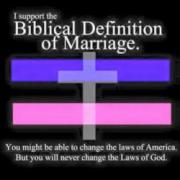Do you remember when it was considered shameful to be a porn star? When porn and mainstream entertainment didn’t mix? Do you remember when being a prostitute was considered disgraceful? Do you recall the days before TV shows like Showtime’s Secret Diary of a Call Girl and HBO’s Cathouse?
There was a time in our culture when we knew how to blush. When we had a sense of propriety. When Hollywood operated under a strict moral code. When secret things were kept secret.
Those days are as distant as TV shows like Lassie. We have forgotten how to blush.
But before anyone misreads me, my purpose here is not to condemn porn-star Stormy Daniels or former Playboy model Karen McDougal, both of whom had alleged adulterous affairs Donald Trump. Nor is my purpose to condemn Trump or, before him, Bill Clinton.
My purpose is to encourage us to look inward at ourselves, at our larger culture, at what has become of America as a whole. Almost nothing shames or shocks today.
These are the days of middle-schoolers sexting each other.
These are the days of wall-to-wall, day-and-night porn.
These are the days when releasing a sex-tape is the path to stardom and when a mother of two posing naked is the way to “break the internet.”
These are the days when 60 Minutes gets its best ratings in years by airing a salacious interview about a porn-star and the president.
These are the days when we have forgotten how to blush.
When Hugh Hefner died last year, I discovered something interesting about the first edition of Playboy in 1953: Hefner’s name was nowhere to be found in the publication. He wanted to hedge his bet, and in the event that the magazine crashed and burned, he would not be blacklisted. In other words, in case America wasn’t ready for a mainstream publication featuring nudity, then his name would not be associated with such a shameful endeavor.
As it turns out, female, celebrity nudity became Hefner’s calling card and claim to fame. And he was lionized as a hero upon his death.
But even back in 1953, the seeds of the sexual revolution were being sown, dating back another 5 years to 1948, when Alfred Kinsey’s infamous The Sexual Behavior of the Human Male was published with much fanfare. This made Kinsey into a household name, with almost no one asking how he obtained data about the sexual responses of children and infants. (This, in and of itself, is one of the most shameful episodes of the 20th century America.)
Still, despite the mainstreaming of Kinsey and then Hefner, the culture as a whole was not immediately affected.
Virginity was still prized (especially among women). Couples did not commonly live together out of wedlock, let alone have children out of wedlock. Illegitimacy was still frowned on. And mainstream movies and TV still featured wholesome examples.
Of course, we were still plagued with segregation, while women did not truly have equal opportunities with men. And so, quite clearly, our society was far from perfect (or Christian).
At the same time, there’s no denying that, in many ways, we’ve been on a steady moral decline since the early days of Kinsey and Hefner.
It is the difference between Leave It to Beaver and Game of Thrones. The difference between Father Knows Best and Girls.
It is the difference between video games like Pacman and Grand Theft Auto: San Andreas. The difference between your first cell phone (which was not that smart) and live, chat-room sex apps.
We have truly forgotten how to blush. We accept that which is unacceptable and celebrate that which is shameful. And in the process, we embarrass ourselves.
But again, my purpose here is not to point an accusing finger at others. It is a call to examine ourselves. To see how far we have fallen. To recognize how coarsened and hardened we have become. To ask ourselves before God, “What has become of my conscience? Have I allowed myself to become corrupted with the rest of the world?”
The bad news is that it’s becoming increasingly difficult to live lives that are separated from the pollution of this age (see 2 Corinthians 6:14-7:1). The good news is that all of us can be cleansed and forgiven.
This weekend, Christians around the world will celebrate the death and resurrection of Jesus. This reminds us of two important truths. First, Jesus died for all of us, which means that all of us have sinned and are guilty in God’s sight. We all deserve condemnation. Second, Jesus died for all for us, which means that all of us can be forgiven and made whole.
Why not take some time this week to reflect on your own life – your own standards and morals and values? And if you realize that you too have forgotten how to blush, ask the Lord to create a new heart within you. Then, see if you can break away from the things that defile your conscience and focus instead on things that are worthy of your time and your attention.
You might just learn to blush again. (I’m working on this too.)























